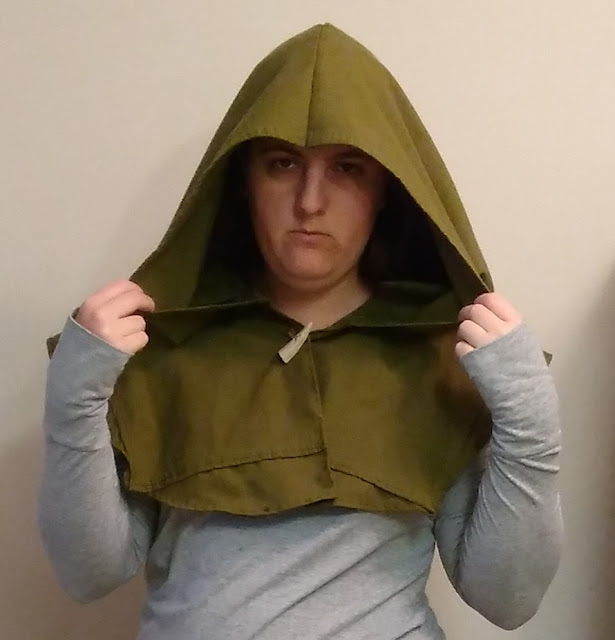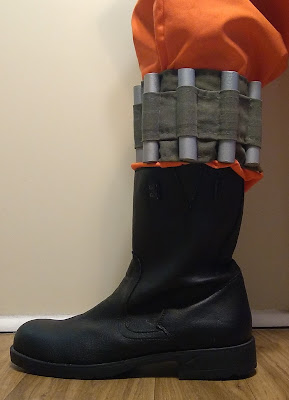Loonatic's Space Opera Books
1. A Princess of Mars (Edgar Rice Burroughs)
Former Confederate cavalryman John Carter goes out in search of gold in Arizona, but instead finds something far stranger. While fleeing from an attack from the Apache, Carter stumbles into an ancient cave and is transported to the planet Mars. Adopted by war-like green Martians, Carter eventually gains great rank due to his warrior skills and unnatural strength. But as tribal politics escalate and he befriends a red Martian princess, Carter's feats of survival find new purpose on the face of this strange landscape. There might be some quibbling on this point but to me this is one of the oldest examples of space opera, a series that has warriors, empires, intrigues, and exotic backdrop of an alien world. Edgar Rice Burroughs is more well-known for his creation of the Tarzan series, but his stories from Barsoom are a scifi staple. Burroughs was purposefully emulating the pulp adventure serials of his time, but ended up making the style so iconic that his name and writings live on. If you're looking for honorable warriors, contemptible villains, ancient devices, and planetary adventures then you can hardly go wrong with A Princess of Mars.
2. Dune (Frank Herbert)
Noble houses may plot for the throne, but truly the fate of all lies in the wasteland of the universe, the desert world of Arrakis. For it is only here that the Spice is found, the substance that stretches consciousness and enables commerce and contact between distant star systems. Administration of this far-flung and unforgiving world passes to the Duke Atreides, but with enemies closing in on all sides the Duke, his Lady Jessica, and their son Paul are on the edge of a deadly trap. But Paul is more than he seems, and through great trial and sacrifice becomes much more than any soothsayer can predict. Truly the Known Universe will never be the same. For a much more in-depth look at Dune and its screen adaptations you can look here, but in short Dune is a deeply introspective, challenging, and fascinating work rich with speculation for the distant future of humankind. Dune blends the thoughtfulness of hard scifi with the accessibility of space opera, giving a strange future enough cultural familiarity and riveting plotlines to balance each other out.
3. Deathstalker (Simon Green)
Owen Deathstalker, a young historian going out of his way not to live up to his family's storied and bloodied name, is about to get a wake-up call. His comfortable life as an obscure noble is turned upside down when the Empress declares him an outlaw on what seems to be a cruel whim. Backed into a corner with no chance of clearing his name Deathstalker can only see one alternative: gather together a band of misfits and criminals to overthrow an unjust ruler. But with plots unfolding within noble Clans and greater threats emerging from alien species, who knows what will be the fate of the Empire? Simon Green is in his element here, and like in Blue Moon Rising he shows just how much dirt and grit he can work into the battles and intrigues of a galactic Empire. This book gets some flak for being a bit into the pulp. I don't really mind, it's fast-paced, entertaining as hell, and is not afraid to twist the knife when it needs to make a point. I especially liked the curious ways Green incorporates fantasy tropes but justifies them with a pinch of science fiction flavor. Very enjoyable, though whoever designed this cover is either an idiot or a genius.
4. Runner (William Dietz)
In the ruins of a galactic empire, only the bold and the desperate dare travel to distant planets in aging, automated spaceships. Among those number are a professional courier and his charge, a young man who just might be a reincarnated religious leader. But when they cross paths with a spiritual medium battling a persistent ghost, simply getting to the planet of their choosing is a life-or-death race to safety. For in their meeting they begin unlocking secrets that may lead to a return to the glories of instantaneous travel, medical marvels, and high society. I had a hard time deciding on a fourth space opera novel, looking over some military science fiction and whatnot. But I had recently reread this book and thought that this was edging in space opera territory though it could be argued this is more hard scifi. This book is more of what happens when the world of space opera's grand empires fall apart, and yet their world-spanning intrigues endure. Although the writing is a bit stiff at times, the world-building is entertaining and there's enough action interspersed to keep things going.
Former Confederate cavalryman John Carter goes out in search of gold in Arizona, but instead finds something far stranger. While fleeing from an attack from the Apache, Carter stumbles into an ancient cave and is transported to the planet Mars. Adopted by war-like green Martians, Carter eventually gains great rank due to his warrior skills and unnatural strength. But as tribal politics escalate and he befriends a red Martian princess, Carter's feats of survival find new purpose on the face of this strange landscape. There might be some quibbling on this point but to me this is one of the oldest examples of space opera, a series that has warriors, empires, intrigues, and exotic backdrop of an alien world. Edgar Rice Burroughs is more well-known for his creation of the Tarzan series, but his stories from Barsoom are a scifi staple. Burroughs was purposefully emulating the pulp adventure serials of his time, but ended up making the style so iconic that his name and writings live on. If you're looking for honorable warriors, contemptible villains, ancient devices, and planetary adventures then you can hardly go wrong with A Princess of Mars.
2. Dune (Frank Herbert)
Noble houses may plot for the throne, but truly the fate of all lies in the wasteland of the universe, the desert world of Arrakis. For it is only here that the Spice is found, the substance that stretches consciousness and enables commerce and contact between distant star systems. Administration of this far-flung and unforgiving world passes to the Duke Atreides, but with enemies closing in on all sides the Duke, his Lady Jessica, and their son Paul are on the edge of a deadly trap. But Paul is more than he seems, and through great trial and sacrifice becomes much more than any soothsayer can predict. Truly the Known Universe will never be the same. For a much more in-depth look at Dune and its screen adaptations you can look here, but in short Dune is a deeply introspective, challenging, and fascinating work rich with speculation for the distant future of humankind. Dune blends the thoughtfulness of hard scifi with the accessibility of space opera, giving a strange future enough cultural familiarity and riveting plotlines to balance each other out.
3. Deathstalker (Simon Green)
Owen Deathstalker, a young historian going out of his way not to live up to his family's storied and bloodied name, is about to get a wake-up call. His comfortable life as an obscure noble is turned upside down when the Empress declares him an outlaw on what seems to be a cruel whim. Backed into a corner with no chance of clearing his name Deathstalker can only see one alternative: gather together a band of misfits and criminals to overthrow an unjust ruler. But with plots unfolding within noble Clans and greater threats emerging from alien species, who knows what will be the fate of the Empire? Simon Green is in his element here, and like in Blue Moon Rising he shows just how much dirt and grit he can work into the battles and intrigues of a galactic Empire. This book gets some flak for being a bit into the pulp. I don't really mind, it's fast-paced, entertaining as hell, and is not afraid to twist the knife when it needs to make a point. I especially liked the curious ways Green incorporates fantasy tropes but justifies them with a pinch of science fiction flavor. Very enjoyable, though whoever designed this cover is either an idiot or a genius.
4. Runner (William Dietz)







Comments
Post a Comment